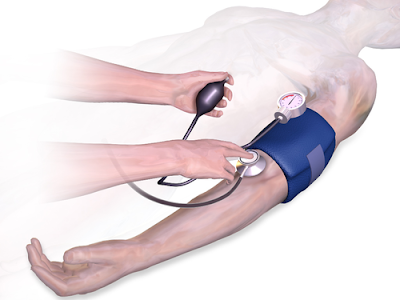Why Is Chronic Pain The Most Prevalent Reason For Seeking a Medical Card?
In the current era, there is a push towards individual states legalizing marijuana for medicinal use. At this point, 16 states plus the District of Columbia have legalized it and there are over 10 more states with it on the imminent horizon. Federally, it remains illegal and a Schedule 1 narcotic.
One of the ubiquitous reasons for legalizing medicinal marijuana is the debilitating condition of chronic pain. This is the number one reason in every state that has it legalized for usage, and in some states it is the overwhelming favorite. Why?
First of all, let us look at the sheer numbers for chronic pain. The Institute of Medicine came out with a recent study showing that over 100 million Americans (1/3 of the population) suffers from some sort of chronic pain. The cost exceeds $500 billion dollars annually between direct cost, lost work time, disability, etc. It's a mind blowing statistic.
There are two well known types of treatment for chronic pain that exist in the US - traditional and alternative. Traditional includes those treatments that are mainstream, typically reimbursed by insurance, and have significant peer reviewed research backing up their usage. Also traditional treatments often have FDA approval for their use, but not always.
Alternative treatments are those that are not typically reimbursed by insurance, and may not have a lot of research backing them up. This does not demean their potential efficacy for chronic pain, especially when used in conjunction with traditional treatments. It is simply a way of categorizing the two. Some alternative methods include holistic, naturopathic, acupuncture, biofeedback, herbal, and some still include chiropractic and massage in this category. This is changing as more insurances reimburse for them along with more research being available.
Patients end up with chronic pain for innumerable reasons. It could be a failed back surgery that only got rid of 20% of a patient's pain, or a condition such as peripheral neuropathy that has no surgical answer. A patient may have scleroderma or rheumatoid arthritis, that entail diffuse pain that may or may not be responsive to narcotic medications.
One ubiquitous issue that is seen with chronic pain is narcotics. Most patients, if they are legitimate hard working individuals, despise taking narcotics. They hate having to take more to get the same pain relief (tolerance), and want to be productive, pain free, and able to stay away from a mind altering and addictive substance to do it.
It is not a bad thing to see such a large number of chronic pain patients turning to an alternative method of pain relief, medicinal marijuana. The only bad part about it is when illegitimate patients start using it (think the 18 year old faking back pain to get a medical marijuana card). The incidence of this happening is a very small number of the total.
With the sheer numbers of patients in the US with chronic pain, and the variety of reasons as to why these patients got to that point, means the pool of applicants for medicinal marijuana cards will be much deeper than the other reasons. Giving them an option that is non-addictive, natural, and legal will open up an avenue of hope and optimism than continuing the negativism of narcotic addiction and despair.
David L. Greene, MD, Phoenix, AZ is CEO of Preferred Pain Center which serves the Phoenix and Scottsdale, AZ metropolitan and surrounding areas. He can be reached at dgreene@preferredpaincenter.com and (602) 507-6550.
Preferred Pain Center is a Comprehensive Arizona Pain Doctors Center including Medical and Interventional Pain Management, Phoenix Chiropractor Treatment, Physical Therapy, Spinal Decompression Therapy, Naturopathic Medicine, and Manipulation Under Anesthesia.
Article Source: http://EzineArticles.com/?expert=David_L_Greene
http://EzineArticles.com/?Why-Is-Chronic-Pain-The-Most-Prevalent-Reason-For-Seeking-a-Medical-Card?&id=6541821


Comments